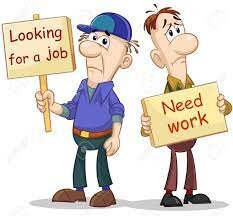
Every economy undergoes cycles of growth and recession, with unemployment rates fluctuating in response to these changes. When the jobless rate rises, a ripple effect touches numerous sectors, including the real estate market. In this context, we’ll explore how unemployment rates dramatically affect foreclosure rates.
Unemployment, at its core, results in a loss of income for households. Most people rely heavily on their employment to maintain their cost of living, including mortgage payments. Therefore, it doesn’t take a rocket scientist to figure out that the ability to keep up with mortgage payments takes a significant hit when people lose their jobs.
But let’s break this down further. When an individual becomes unemployed, their financial safety net becomes frayed. The immediate concern is covering everyday expenses like food, utilities, and healthcare. For many, these immediate needs supersede mortgage payments, which are often one of a household’s most significant monthly outgoings. This prioritization of immediate needs over mortgage payments leads to increased delinquency rates, which, if sustained, leads to foreclosures.
While it’s possible to weather a brief period of unemployment without falling into foreclosure, prolonged joblessness poses a severe risk. Savings get depleted, and the safety net disappears entirely. Once this happens, the prospect of foreclosure becomes a stark reality. Maintaining consistent mortgage payments is next to impossible without a steady income stream or substantial savings.
This predicament is further exacerbated when widespread unemployment is seen during economic recessions or downturns. When many individuals in a community or nation face unemployment, the problem of foreclosures escalates from an individual issue to a systemic one. This was evident during the 2008 financial crisis, when skyrocketing unemployment rates led to unprecedented foreclosures.
Moreover, when unemployment rates rise, it has a knock-on effect on the broader housing market. An increase in foreclosures saturates the market with properties, which can drive down house prices and affect the overall stability of the real estate market. This creates a vicious cycle where decreased property values can lead to even more foreclosures.
Governments often step in to break this cycle by providing unemployment benefits, stimulus packages, or mortgage relief programs to assist those affected. However, these are typically stop-gap measures. Measures to increase job security and decrease unemployment rates are necessary for a sustainable solution.
To conclude, the link between unemployment rates and foreclosures is profound. An upsurge in joblessness can create a domino effect leading to higher foreclosure rates and destabilizing the housing market. Policymakers, economists, and stakeholders in the real estate sector must understand and address this correlation to mitigate its impact. After all, a stable job market isn’t just about employment — it’s also about maintaining a robust and resilient housing market.
